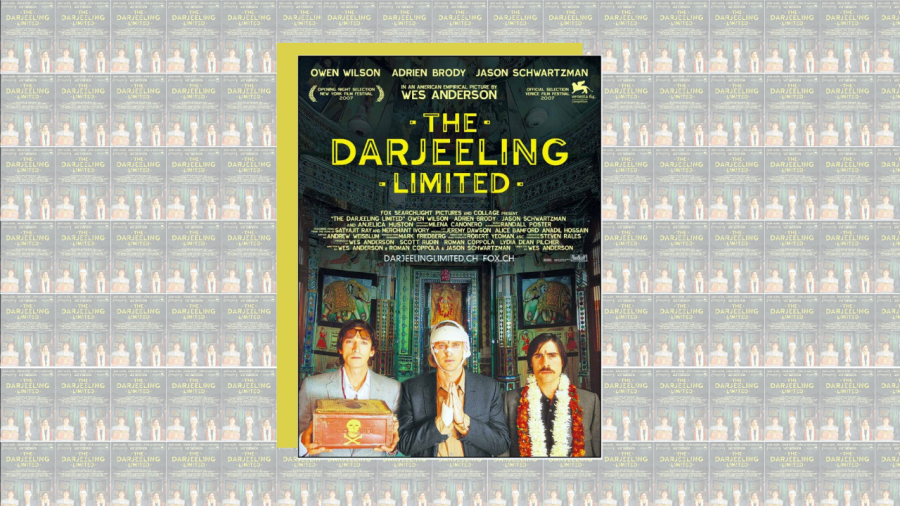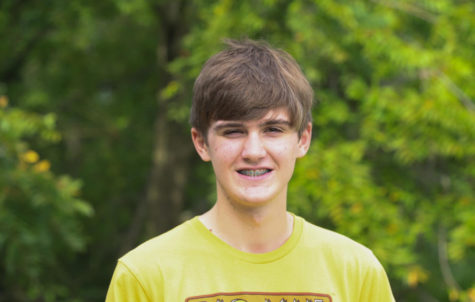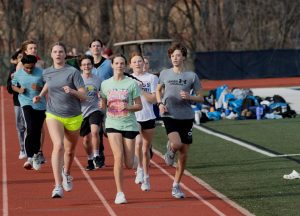Meandering Perfection
The magic of The Darjeeling Limited
Image Rights to: Fox Searchlight Pictures
The Darjeeling Limited is the moment in director Wes Anderson’s career where he began to master his style, it’s also by far his most organic movie to date.
January 14, 2020
I watched a lot of movies last year; around 50 to be exact. In all that time I spent scouring video stores Blu-rays and taking mental notes on what to watch next, I solidified what I look for in movies. Among other things, detail and style have taken hold as the defining factors for all film that I watch. Among the dozens of movies I’ve watched last year, a personal favorite of mine has emerged; The Darjeeling Limited. Released in 2007, this is the 5th feature-length picture from writer/director Wes Anderson. Darjeeling is an extremely enjoyable movie, bursting with humor, heart, and detail from start to finish.
As far as plots go, the set-up to Darjeeling is fairly simple. Three brothers, having not seen each other since the death of their father one year earlier, reunite to take a journey by train across India in an attempt to have what they hope to be a spiritual experience. To most, it’s sort of a hard sell; nothing too out of the ordinary. However, the fascinating thing about Darjeeling is that it remains consistently engaging despite its utter lack of any kind of adventure. The journey is not defined by grand swaths of action and suspense, but rather all of the little interactions and things we learn about our three protagonists.
The typical ensemble-cast of characters that most Anderson movies are known for is slimmed down to a humble three in Darjeeling: Francis Whitman (Owen Wilson), Peter Whitman (Adrien Brody), and Jack Whitman (Jason Schwartzman). Francis is the eldest of the brothers, and helms their trek across India. He is perhaps the most intriguing of the three. He saunters around the train cabins with a walking cane and a face covered in bandages, and carries around a laminated itinerary as a pseudo-battle-flag. Although he clearly has made enough money to hire a personal assistant (Wally Wolodarski), you get a clear impression that he’s probably the most misguided and self-destructive of the Whitman children, despite him being the eldest. Peter is the middle child, and probably the one least happy with being in a land he’s entirely unfamiliar with. And then there’s Jack, the bright-eyed baby of the group, who spends most of his time on the train flirting with a stewardess by the name of Rita (Amara Karan).
The film is almost entirely structured around their relationship, with the true intent of their journey remaining a complete mystery until about half-way through. Instead of Darjeeling being more concerned with putting these characters through drastic life-changing situations (although such situations do end up happening), it focuses on their dynamic as it already exists at the start of the film. They talk, bicker, smoke, and reminisce with each other for nearly the entirety of the movie, and in doing so, you gradually develop an intimate understanding of what kind of people they are. For example, the movie never directly states who is the oldest and the youngest amongst the Whitman brothers; you just pick up on it by observing the way they bounce off of each other. It’s not only interesting, but oftentimes very funny. The three have a wonderful chemistry, to say the least.
One of the most satisfying aspects of the film is how it is presented. The director, Wes Anderson, has developed a craft and style that is undeniably distinguishable from most other filmmakers working today; built off of symmetry, color, and music. While I completely understand how some people could see it as overly-showy or obnoxious, I have become intimately familiar with it and love it immensely.
Along with Darjeeling being the moment in Anderson’s career where he began to master his style, it’s also by far his most organic movie to date. While it has plenty of tracking shots, one-take monologues, and a couple of slow-motion sequences, it also has a hand-full of scenes that simply serve to soak in the beauty and charm of India. Vast desert landscapes, crowded city streets, small intimate villages; all of these are shown in wonderful unfiltered detail.
Additionally, the majority of Darjeeling’s score is borrowed from several sources of Indian cinema; most of them are compositions from the work of an Indian director named Satyajit Ray. India as a setting is not simply used as a gimmick, as it very well could have been in the hands of a lesser filmmaker. It’s instead an integral part of the film’s identity, that fits the movie’s themes of loss, renewal, and spirituality near-perfectly.
The Darjeeling Limited has been dancing around in my head ever since I first saw it in November, and my appreciation has grown for it over the last couple times I’ve rewatched it. It an exceedingly warm movie, even with its melancholy undertones. It has charm, wit, and beauty leaping from nearly every frame. By the time the movie is over, you feel as if~even in the smallest way~you are a part of the Whitman family.









